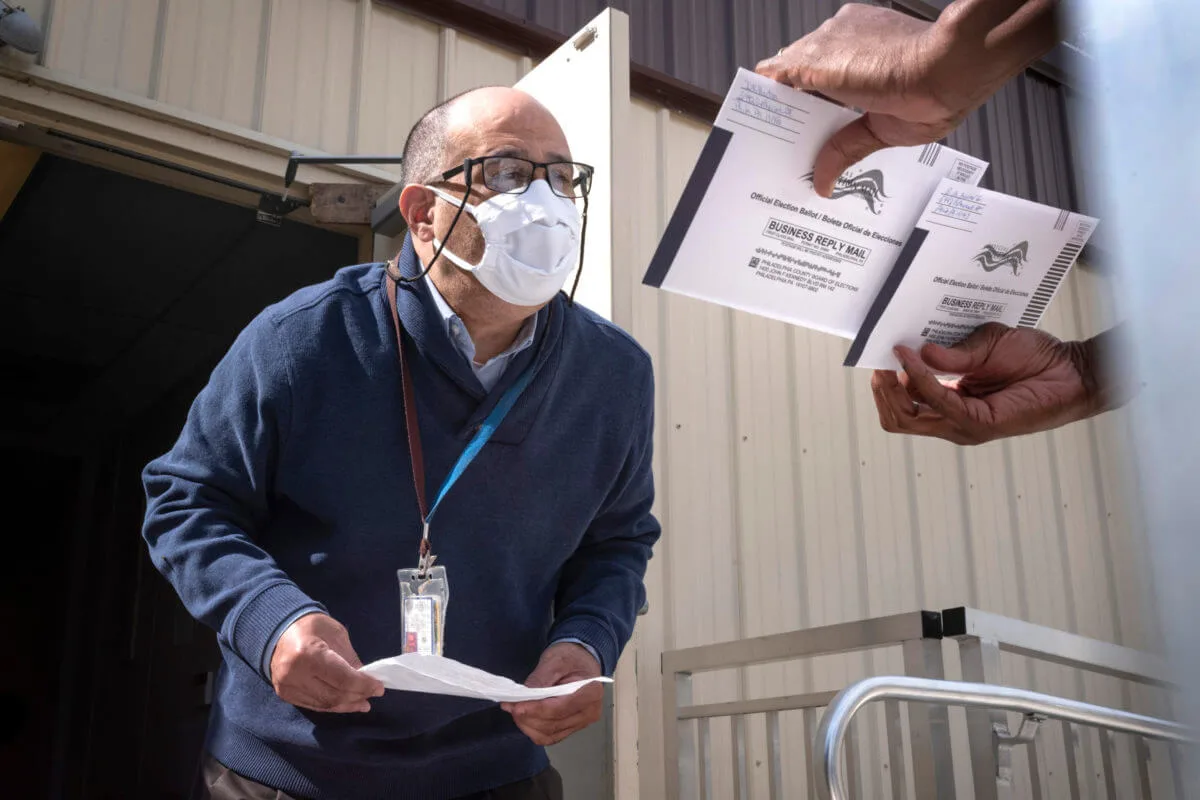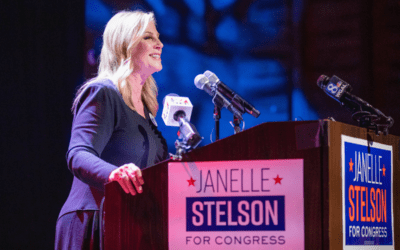
The US Supreme Court on Monday allowed Pennsylvania to continue accepting mail-in ballots up to three days after Nov. 3, blocking a state GOP push to prevent an extended deadline for mail-in ballots in the state. (AP Photo/Laurence Kesterson, File)
The decision was tentatively celebrated by voting rights advocates, but also underscored significant concerns over what the impending confirmation of Judge Amy Coney Barrett could mean for the Court.
The US Supreme Court on Monday ruled that Pennsylvania election officials will be able to count mail-in ballots received up to three days after Election Day, in order to accommodate for a surge of mail-in ballots expected amid the coronavirus pandemic.
The Court’s 4-4 split upholds the ruling from the Pennsylvania Supreme Court, which interpreted the Pennsylvania Constitution to extend the state’s mail-in ballot deadline. In upholding the state court’s order, the Supreme Court denied a challenge from Republicans in the Pennsylvania legislature who opposed extending the deadline to allow for mail ballots to arrive.
While Chief Justice John Roberts sided with the Court’s three liberal judges in denying the Pennsylvania GOP’s challenge, the court’s four most conservative justices—Clarence Thomas, Samuel Alito, Neil Gorsuch and Brett Kavanaugh—said they would have granted the stay. They did not, however, write a dissent explaining their decision.
The ruling was tentatively celebrated by voting rights advocates, but also underscored their significant concerns over what the impending confirmation of Judge Amy Coney Barrett could mean for the Court.
As several election experts and journalists have noted, the 4-4 split raises the hugely consequential question of whether a state Supreme Court has the power to interpret the state’s constitution and enforce or change election laws in their own states. The four conservative justices who sided with Pennsylvania Republicans did not answer that question, meaning it’s unclear whether they believe state supreme courts ultimately have that power—as has long been the case—or whether legislatures could usurp them.
The consequences of such a possibility could be extraordinary. “This lack of guidance could be a huge problem in the two battleground states—North Carolina and Pennsylvania—with Democratic state Supreme Courts and Republican legislatures who could battle over any post-election voting rules,” election law expert Rick Hasen noted in Slate.
That reality could become all the more likely if and when Judge Amy Coney Barrett joins the Court. Barrett, a deeply conservative Judge, could have served as the fifth vote in this case and overturned the Pennsylvania Supreme Court’s decision. If the Supreme Court receives similar challenges in the future and Barrett does indeed side with the four most conservative justices, the Court could undermine voting rights protections included in state constitutions and have an impact on critical aspects of federal elections laws.
With a 6-3 conservative court, such power could allow the justices to insert themselves into elections and ensure a generation of electoral victories for Republicans.
Such a situation could play out as early as November, when state courts could experience a wave of lawsuits challenging election results. If any of those cases ultimately land before the Supreme Court, a conservative court could ultimately decide the outcome of the election, like it did in Bush v. Gore in 2000.
In fact, Pennsylvania Republicans could even bring another challenge to the extended mail ballot deadline once Barrett is seated. If that happens, there is the possibility that the new Court would side with Republicans and toss out any ballots that arrive after Election Day.
During her confirmation hearings with the Senate, Barrett also refused to say whether or not she would recuse herself from election-related cases if they made it to the Supreme Court.
With that possibility in mind, Hasen took to Twitter on Monday to warn Pennsylvania residents to “VOTE AS SOON AS POSSIBLE BY MAIL OR TO VOTE IN PERSON ON ELECTION DAY.”
“DO NOT WAIT TO VOTE ANY LONGER THAN YOU HAVE TO,” he concluded.

For Rep. Susan Wild, supporting PA families includes reproductive rights and much more
Rep. Susan Wild wants to be very clear with Pennsylvanians: Donald Trump is committed to taking away women’s reproductive freedom, but he is not...

School districts working with anti-LGBTQ groups can cost your kids’ schools millions
Parents across South Central Pennsylvania are worried about the potential financial impacts working with anti-LGBTQ groups may have on their school...

VIDEO: Trump distances himself from his anti-abortion views
Donald Trump appeared on WGAL on Tuesday and continued to distance himself from his anti-abortion views claiming that reproductive rights are now a...

VIDEO: Community pushback gets school board to rescind decision on denying gay actor’s visit
Cumberland Valley School Board offered a public apology and voted to reinstate Maulik Pancholy as a guest speaker a week after the board voted to...

VIDEO: Project 2025 brings nuclear armageddon back into vogue
Project 2025 is a titanic document, with plans ranging from cutting half of all government employees to targeting reproductive rights on a scale...





